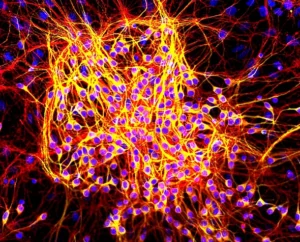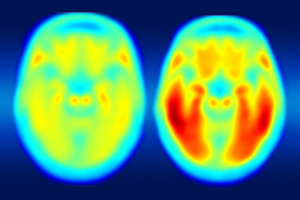Scientists have linked mutations in a single gene to autism in people who have a rare tumor syndrome typically diagnosed in childhood. The findings, in patients with neurofibromatosis type 1 (NF1), may lead to a better understanding of the genetic roots of autism in the wider population.
Scientists link single gene to some cases of autism spectrum disorder (Links to an external site)

![One February 25, 2015, Lori DeMoe McIntyre died of Alzheimer’s disease at age 56, after participating in DIAN research for nearly eight years. Her daughter Jessica McIntyre memorialized her mom with a large tattoo of Lori’s amyloid PIB PET scan. The younger McIntyre and one of her sisters participate in DIAN and DIAN-TU. [Courtesy of Jessica McIntyre, art by Joey Borger, Certified Customs, Denver, Colorado.]](https://neurology.wustl.edu/wp-content/uploads/2022/06/image-17-300x210.png)







